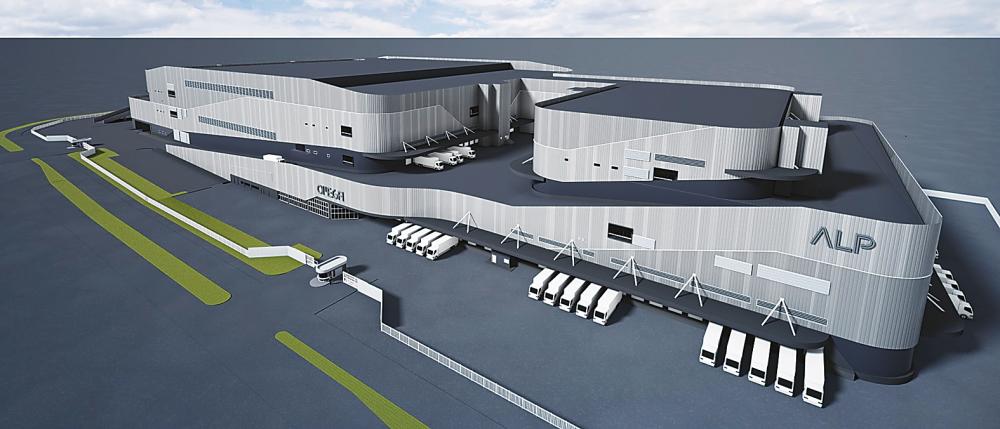KLANG: Taiwan’s Ally Logistic Property (ALP) today unveiled its first smart warehousing facility in Malaysia – the 27-acre ALP Bukit Raja OMega worth US$180 million (RM844 million) at Bukit Raja Industrial Park here.
ALP’s multi-tenant warehouse is scheduled to be ready by the third quarter of 2024. ALP is partnering with the Employees Provident Fund for this project.
ALP co-founder and CEO Charlie Chang said it is set to develop at least five smart warehouses in Malaysia in the next six to seven years, with a total investment of US$1 billion.
“In Malaysia, our aim is US$1 billion, probably five to six OMega. But depending on the size of the project and acceptance by the market, it doesn't end there,” he said at the launch and groundbreaking ceremony of ALP Bukit Raja OMega.
The event was officiated by Selangor senior executive councillor Datuk Teng Chang Khim. Teng said ALP’s smart warehouse enables clients to enjoy benefits, similar to Amazon warehouses, which utilise automation and technology.
ALP Malaysia managing director Karen Liu said the company strives to support local and multinational clients in their digital transformation.
“OMega will bolster Malaysia’s logistics and warehousing industry to support growing demand for multinational brand owners and retailers looking to establish their regional distribution centres in Selangor and Malaysia,” she said.
OMega is a multi-storey, automation built-in, and technology-integrated warehouse. It uses shared warehouse structure to offer a flexible rental plan to accommodate industry clients’ business expansion. It will feature 1.8 million square feet in total floor area with an additional 100,000 pallets in the shared automated storage and retrieval system zone that suits fast-moving consumer goods, retailers, and e-commerce platforms.
ALP executive vice president, group operations excellence & regional business development Chris Lower said the logistics industry needs to upgrade, to improve working environments through implementing automation equipment, systematic workflows, and to reduce dependency on human labour.
“We expect corporations will need larger logistics facilities with dense storage to integrate B2B, B2C, and multiple retail channel demand, taking advantage of automated equipment and systems to reduce reliance on manpower, improving resilience when facing emergencies, and providing a better service level to the end consumers,” he said.
ALP began its Southeast Asia market expansion in 2019, setting up a subsidiary office in Malaysia. It plans to expand to other countries in the region, including Vietnam, Thailand, the Philippines and Indonesia.
“We have seen increasing demand for our innovative and future-proof products and services in Southeast Asia. With the start of construction on this new warehouse facility in Malaysia, ALP is committed to continue driving efforts to spur growth for the industry while empowering local brands in their digital transformation journey to reach new markets,” Chang said.
Since its inception in 2014 as one of the first smart logistics infrastructure developers that offers warehousing space and automation and robotic solutions in Taiwan, ALP has grown to become one of the leading players in the industry. It has six logistics parks and 14 logistics hubs in Taiwan, managing 570,000 square metres of warehousing space and US$800 million in assets.









